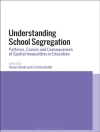Let’s face it, weak rivets notwithstanding, the Titanic wouldn’t have sunk if the iceberg had been spotted in time. And let’s face it, the CCSS won’t be classroom-worthy unless practitioners chart our course. Depend on Michael Smith, Deborah Appleman, and Jeff Wilhelm to help you navigate through some potentially treacherous waters.
Uncommon Core puts us on high-alert about some outright dangerous misunderstandings looming around so-called ‘standards-aligned’ instruction, then shows us how to steer past them—all in service of meeting the real intent of the Common Core. Smith, Appleman, and Wilhelm counter with teaching suggestions that are true to the research and true to our students, including how:
- Reader-based approaches can complement text-based ones
- Prereading activities can help students meet the strategic and conceptual demands texts place on them
- Strategy instruction can result in a careful and critical analysis of individual texts while providing transferable understandings
- Inquiry units around essential questions can generate meaningful conversation and higher-order thinking about those texts
- Selection criteria that consider interpretive complexity can take us so much farther than those that consider textual complexity alone
Given the number of strategies, lesson ideas, and activities in the book, Uncommon Core is really less about the standards and more about timeless, excellent teaching and how to use it like never before to meet the Core ideals. Let’s put instruction where it belongs: back in the hands of the experts.
‘Finally! A book with more light than heat on the issue of standards and their implications for learning.’
–GRANT WIGGINS
Coauthor of Understanding by Design
Tabela de Conteúdo
Foreword by Grant Wiggins
Acknowledgments
Chapter 1. The Promise and the Peril of the Common Core State Standards
What′s to Like About the CCSS
What′s to Worry About
What the Standards Leave Out
Chapter 2. Old Wine in Broken Bottles: The Common Core State Standards and ‘Zombie New Criticism’
A Lesson From the Classroom
Where the Authors of the Standards Go Wrong About Connecting Texts With Lived Experience
How You Can Get It Right
Sticking With the Standards (Not With the Instructional Mandates That Showed Up Later)
Chapter 3. Using the Most Powerful Resource We Have for Teaching Students Something New: The Case for Background Knowledge
Where the Authors of the Standards Go Wrong About Pre-Reading Instruction
Why It Matters
Preparing Students to Comprehend
How You Can Get It Right: Five Strategies That Connect Students With Critical Concepts
Moving Students to Independence
Chapter 4. Teaching for Transfer: Why Students Need to Learn How to Attend to Any Text
Where the Authors of the Standards Go Wrong About Closed-Ended, Text-Based Questions
Why It Matters
How You Can Get It Right: Six Strategies That Increase Comprehension and Independence
Moving Students to Independence
Chapter 5. No Text Is an Island: How to Get Students Farther With Text-by-Text Sequencing
Where the Authors of the Standards Go Wrong About Text-to-Text Connections
Why It Matters
How You Can Get It Right: Three Strategies for Developing Knowledge Across Texts
Chapter 6. Aiming for Complex Interpretation: How to Be Street Smart About Choosing Complex Texts
Where Interpretations of the Standards Get It Wrong
Three Ways to Choose the Right Books for Your Kids
Chapter 7. Putting Our Money Where Our Mouths Are: Our Unit for Teaching ‘Letter From Birmingham Jail’
David Coleman on King′s ‘Letter’
An Alternative Approach: Our Unit for Teaching the ‘Letter’
A Sample Unit: “Letter From Birmingham Jail”
A Summary of This Unit′s Approaches
Principles of Practice
Accountability and Assessments
Final Thoughts
References
Index
Sobre o autor
A classroom teacher for fifteen years, ?Jeffrey D. Wilhelm? is currently Professor of English Education at Boise State University. He works in local schools as part of a Virtual Professional Development Site Network sponsored by the Boise State Writing Project, and regularly teaches middle and high school students. Jeff is the founding director of the Maine Writing Project and the Boise State Writing Project.












